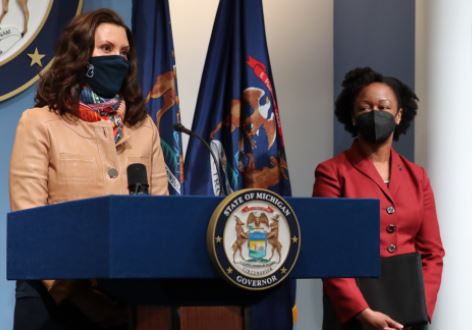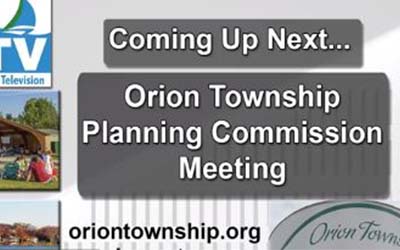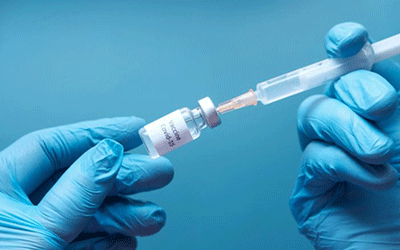
Commission makes lowering suicide a priority

Press Release FOR IMMEDIATE RELEASE: April 12, 2021 CONTACT: Bob Wheaton, 517-241-2112, wheatonb@ Michigan Suicide Prevention Commission report makes lowering suicide rate a priority, offers recommendations
Someone dies by suicide every six hours in the state
LANSING, Mich. – With someone dying by suicide every six hours in the state, the Michigan Department of Health and Human Services (MDHHS) is releasing a report that makes recommendations on how to reduce the suicide rate.
The Michigan Suicide Prevention Commission Initial Report is from a group appointed by Gov. Gretchen Whitmer in March 2020.
“In Michigan, anyone who needs help should be able to get it,” said Gov. Whitmer. “This task force will do critical work to collect data, expand resources, and implement best practices so we can save lives. We must work together to reduce suicide rates in Michigan and make sure that everyone knows that it’s OK to not be OK and help is always here.”
The recommendations address the commission priorities of:
“Suicide is preventable, and Michigan’s current suicide rates are unacceptable,” said Dr. Joneigh Khaldun, chief medical executive and MDHHS chief deputy director for health. “However, through our plans and intentional actions, we can provide the help and resources necessary to save lives. Together, we can make Michigan a model state for suicide prevention, and a place where everyone gets the help they need, when they need it.” The first section in the report highlights in-depth data regarding the burden of suicide within the state, identified risk factors and populations at greater risk for death by suicide. The second section includes the Michigan Suicide Prevention Commission initial priorities and recommendations as a comprehensive approach to reduce suicide attempts and deaths. The commission has been charged to work with state departments, nonprofit organizations and universities to research the causes and possible underlying factors of suicide in the state. Provisional 2020 data for Michigan shows 1,282 suicide deaths. That number is expected to increase as more suicide reports are finalized. In 2019 there were 1,471 suicides in Michigan. Suicide is the 10th leading cause of death in Michigan. In 2017 more than four times as many people died by suicide in Michigan than by alcohol-related motor vehicle accidents. Many suicide prevention practices are relatively new and evaluation data is evolving. Lowering the state suicide rate will require long-term investment, groundbreaking policy and strong community work. The report represents another step in that direction. Suicidal thoughts by themselves are not dangerous, but the response to them can make all the difference, MDHHS officials said. Support is available. The report notes that MDHHS has taken steps to address mental health issues that could be worsened by the COVID-19 pandemic. This has included providing mental health and substance use services, as well as emotional support resources. These resources can be found at michigan.gov/StayWell. More research is needed to understand the long-term effects of how the pandemic is affecting mental health, who is at greater risk and how emerging risks can be counteracted, the report says. Efforts will continue to establish resources and streamline access to services and supports, with an understanding that they will need to be sustained throughout the pandemic and beyond, the report says. Anyone who needs help can call the National Suicide Prevention Lifeline 24 hours a day, seven days a week, at 1-800-273-8255 or 1-800-273-TALK. Press 1 for the Veterans Crisis Line. Anyone under age 21 can ask to talk to a peer at Teen Link, 1-866-833-6546. TTY users can use their preferred relay services or dial 711 then 1-800-273-8255. |











